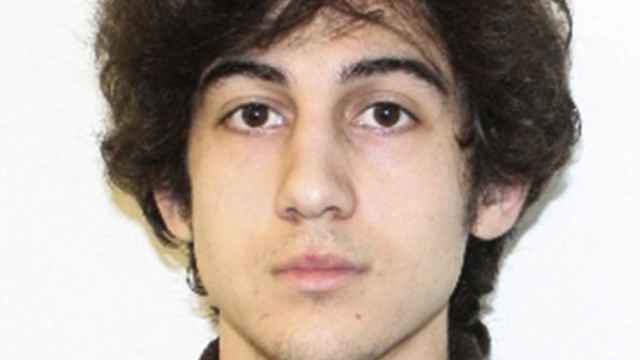The upcoming trial against Boston Marathon bombing suspect Dzhokhar Tsarnaev is likely to focus on his deceased brother, Tamerlan Tsarnaev, whom Russian investigators warned their U.S. counterparts about prior to the grisly 2013 attack.
Three people were killed and more than 260 were injured when two homemade pressure-cooker bombs exploded near the finish line of the iconic race on April 15, 2013.
Tamerlan Tsarnaev, 26, died days after the bombings following a gun battle with police. Dzhokhar, then 19, was later found hiding in a boat parked in a backyard. Jury selection in his federal death penalty trial is entering its second month.
When Dzhokhar's case begins, his lawyers are likely to pin their hopes — and the bombings themselves — on his older brother, Tamerlan: an amateur boxer, college student, husband and father who followed radical Islam and was named by a friend as a participant in a 2011 triple slaying.
Authorities believe Tamerlan's beliefs became radical during the last few years of his life.
In March 2011, Russian officials told the FBI that Tamerlan was a follower of radical Islam. The FBI interviewed Tamerlan, but closed its investigation several months later after finding nothing linking him to terrorism.
In 2012, Tamerlan spent six months in the southwest Russian regions of Chechnya and Dagestan, where authorities have said they suspect he tried to join insurgents, but was unsuccessful.
If a jury convicts Dzhokhar, its decision on whether to give him life in prison or sentence him to death could depend "on the extent to which it views Tamerlan Tsarnaev as having induced or coerced his young brother" to help commit the crimes, the defense argued in a court filing.
Dzhokhar's lawyers have made it clear they will try to show that he was heavily influenced, maybe even intimidated, by his older brother, into participating in the bombings. Prosecutors are prepared to argue that Dzhokhar was a full and willing participant in the bombings.
The relationship between the two brothers would likely be a key part of the evidence Dzhokhar's lawyers present even if he's convicted, said lawyer David Hoose.
Under the federal death penalty law, juries deciding on a sentence can consider whether a defendant "was under unusual and substantial duress," regardless of whether duress is used as a defense to the charges.
Prosecutors have said that a friend of Tamerlan's, Ibragim Todashev, implicated him in the killings of three men whose bodies were found sprinkled with marijuana, their throats cut. Todashev was shot to death by an FBI agent after authorities said he charged another investigator with a pole while being questioned about the Tsarnaevs.
"If they can show that the older brother is gruesomely involved in the murders, all the more reason that Dzhokhar felt that not only is he my brother — he is someone not to fool around with. I have to do what he says,'" Hoose said.
Tamerlan's school friends say he appeared to adjust well to his life in America. In 2010, he married Katherine Russell, a woman he met at a nightclub, and the couple had a daughter together.
"He was the eldest one and he, in many ways, was the role model for his sisters and his brother," said Elmirza Khozhugov, the former husband of Tamerlan's sister, Ailina.
"You could always hear his younger brother and sisters say, 'Tamerlan said this,' and 'Tamerlan said that.' Dzhokhar loved him. He would do whatever Tamerlan would say," Khozhugov said in the weeks after the bombings.
About a decade before the attack, their parents, ethnic Chechens, had moved the family to the United States from the volatile Dagestan region of Russia after living in the former Soviet republic of Kyrgyzstan. Their father, Anzor Tsarnaev, said they emigrated in part to escape discrimination.
A Message from The Moscow Times:
Dear readers,
We are facing unprecedented challenges. Russia's Prosecutor General's Office has designated The Moscow Times as an "undesirable" organization, criminalizing our work and putting our staff at risk of prosecution. This follows our earlier unjust labeling as a "foreign agent."
These actions are direct attempts to silence independent journalism in Russia. The authorities claim our work "discredits the decisions of the Russian leadership." We see things differently: we strive to provide accurate, unbiased reporting on Russia.
We, the journalists of The Moscow Times, refuse to be silenced. But to continue our work, we need your help.
Your support, no matter how small, makes a world of difference. If you can, please support us monthly starting from just $2. It's quick to set up, and every contribution makes a significant impact.
By supporting The Moscow Times, you're defending open, independent journalism in the face of repression. Thank you for standing with us.
Remind me later.





